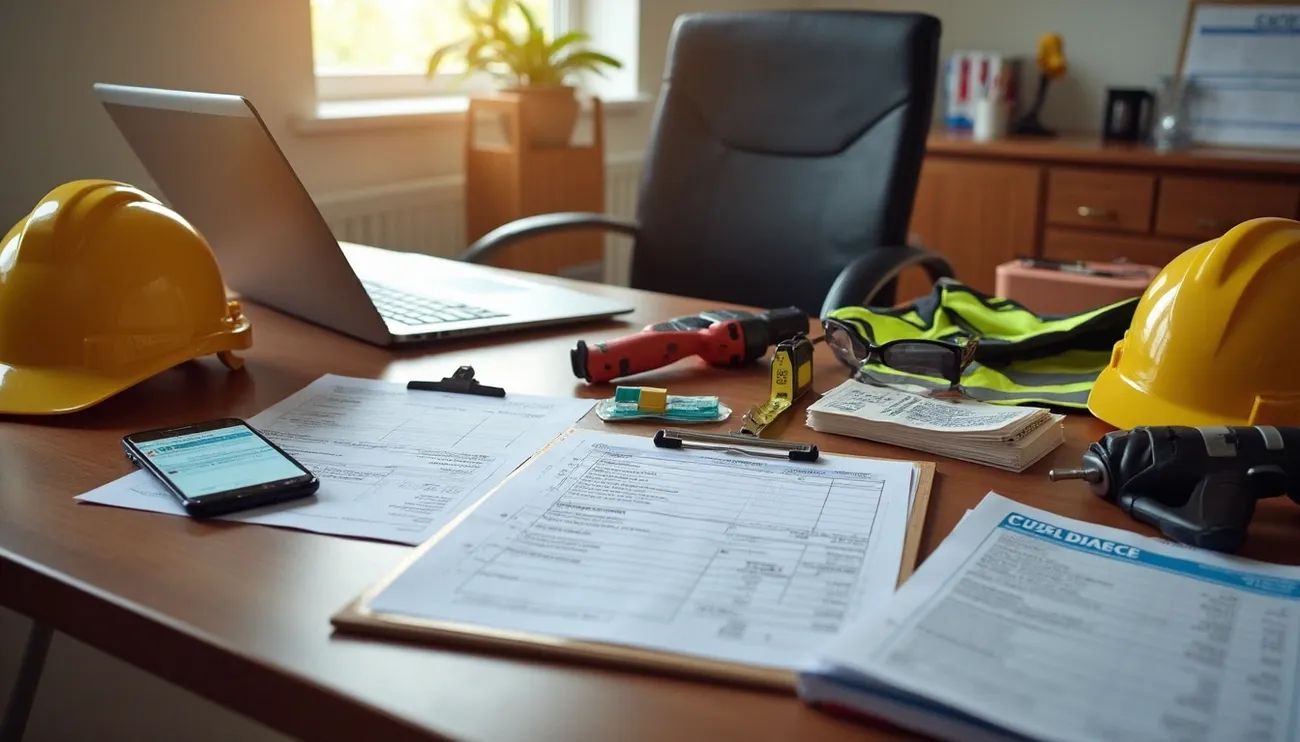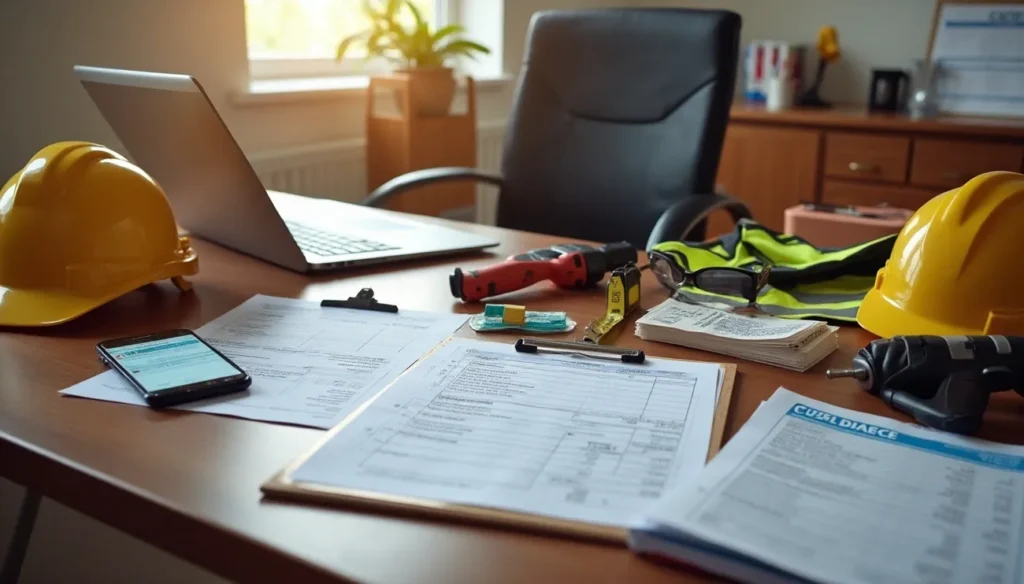Hidden Construction Tax Deductions That Could Save You Thousands

Construction tax deductions can save you thousands of dollars each year, but many contractors miss out on legitimate write-offs. Your business can claim various deductions ranging from tools and equipment to mileage and business meals. The tax code allows you to deduct up to 50% of your business meal expenses, which includes sales tax and gratuity.
Managing a construction business makes it hard to track all possible tax write-offs while handling daily operations. The standard mileage rate changes yearly and offers 67 cents per mile for 2024 and 65.5 cents per mile for 2023. Most tools and equipment costs can be deducted right away, while longer-lasting items need to be depreciated over time.
Many construction business owners overlook deductions for industry-related courses, seminars, and certifications. Your business can fully deduct payments to subcontractors who provide services like logo design or website development. Construction companies can also claim tax deductions for parking fees, fuel costs, and vehicle maintenance.
This piece reveals 16 hidden tax deductions that could save your construction business thousands of dollars. These deductions can reduce your tax burden by a lot and boost your bottom line, whether you’re a general contractor, subcontractor, or construction business owner.
Commonly Missed Construction Business Tax Deductions
Construction business owners often miss out on legitimate tax deductions. Your tax burden at the end of the fiscal year can drop if you know what counts as a business expense. Here are some overlooked construction tax deductions that could save your business thousands.
1. Tools and small equipment under $2,500
Construction businesses can deduct the full cost of tools and equipment that cost less than $2,500 per item, thanks to the IRS de minimis safe harbor threshold. This means you can fully deduct hammers, electric drills, wheelbarrows, saws, screwdrivers, shovels, nail pullers, wrenches, and ladders bought for business use in the year of purchase. Equipment that lasts more than one year might need depreciation over time instead of immediate expense claims.
2. Safety gear and work clothing
Safety equipment serves as a valuable tax write-off while keeping workers protected. You can deduct steel-toed boots, first aid kits, safety glasses, hard hats, gloves, construction vests, and hand protection when used only for work. These items must be specific to your job and not suitable for everyday use. Jeans worn on the job site aren’t deductible since people wear them daily. Clothing with your company’s logo qualifies as a business expense.
3. Business-related phone and internet costs
Business portions of phone and internet expenses qualify as deductions. You can deduct 15% of the expense if you use your cell phone 15% of the time for business. A log of business-related activity helps verify your claimed percentage – just note down dates, business purpose, and time spent. Internet service qualifies as a legitimate deduction if you host a business website or conduct regular business online.
4. Software subscriptions and digital tools
Project management software, estimating programs, accounting applications, and other digital tools qualify for full deductions if they help run your construction business. Software like QuickBooks, FreshBooks, or industry-specific tools such as Buildertrend or Handoff qualify when they meet the IRS criteria of being both “ordinary and necessary” for your business. The IRS defines “ordinary” as common in your field, while “necessary” means helpful and appropriate for your business.
Hidden Vehicle and Travel Write-Offs
Construction professionals can save a lot on taxes through vehicle-related expenses. Tax season could put thousands of dollars back in your pocket with the right documentation of transportation deductions.
1. Standard mileage vs. actual expenses
The IRS lets you deduct vehicle expenses in two ways. The standard mileage rate is a straightforward option at 67 cents per mile for 2024, up from 65.5 cents in 2023. You can also choose the actual expenses method to deduct specific costs like gas, insurance, maintenance, and depreciation based on your business-use percentage. Your first-year choice matters. Picking actual expenses means you must stick with that method for that vehicle. Starting with standard mileage gives you the flexibility to switch between methods later.
2. Parking fees and tolls
Here’s a benefit many miss: you can deduct parking fees and tolls whatever vehicle expense method you pick. This covers business-related highway tolls, bridge fees, parking garages, and meters. Your commute between home and main workplace doesn’t qualify, but travel costs between job sites or client meetings do. Make sure to keep all receipts or electronic toll statements among records that show the business purpose of each trip.
3. Travel meals and lodging
Overnight construction work opens up more tax deductions. You can fully deduct legitimate business travel lodging expenses, while business meals, including room service, come with a 50% deduction limit. You’ll need to show these expenses are “ordinary and necessary” for business. Beyond hotel costs, airport transportation, business communication expenses, and laundry services are deductible too.
4. Depreciation of work vehicles
Heavy vehicle depreciation gives construction businesses great tax advantages. Your vehicle’s weight (Gross Vehicle Weight Rating) determines how much you can deduct in the first year. Section 179 and bonus depreciation might let you deduct much of a vehicle’s cost right away. Note that depreciation must follow specific IRS rules—we used the Modified Accelerated Cost Recovery System for vehicles placed in service after 1986.
Overlooked Office and Administrative Expenses
Administrative costs are often overlooked on construction business tax returns. These expenses can lead to big tax savings when you document and claim them properly.
1. Home office deduction rules
Construction business owners can deduct home office expenses if they use the space exclusively and regularly for business purposes. You can choose between two calculation methods: the regular method that deducts actual expenses based on your home’s business-use percentage, and the simplified method that allows $5 per square foot up to 300 square feet (maximum $1,500). The space must be your principal place of business or serve regular administrative tasks. You can deduct a portion of mortgage interest, property taxes, utilities, internet, insurance, and maintenance costs based on your office space.
2. Office supplies and postage
The IRS lets you deduct business supply expenses in the tax year you use them. Your deductible items include pens, paper, printers, computers, work-related software, and postage. These expenses must serve business purposes within the purchase year. Note that items with useful lives that substantially exceed one year must be depreciated instead of being expensed right away. You should keep detailed records since many supplies could have personal uses.
3. Professional services like accounting and legal
You can fully deduct professional service fees needed to run your business. This includes accounting, bookkeeping, tax preparation, and legal services. Legal fees qualify for business-related contract drafting, employment issues, compliance advice, and tax disputes. The fees must be “ordinary and necessary” expenses that directly relate to your business operations. You’ll need to issue a 1099 form for amounts over $600 paid to service providers.
4. Marketing and advertising costs
Your reasonable advertising expenses are 100% deductible. These include digital advertising (Google Ads, Facebook ads), website development and maintenance, business cards, print materials, and trade show costs. Vehicle lettering, signage, and professional photography for marketing materials also qualify. Good expense tracking can reduce your tax bill substantially. Advertising costs have fewer limitations than other deductions, making them valuable for construction businesses that want to grow while keeping taxes low.
Advanced Deductions That Save Big
Construction businesses can dramatically reduce their tax liability and improve cash flow through advanced tax deductions that go beyond simple write-offs. In fact, financial success often depends on how well a business understands these complex deductions.
1. Section 179 and bonus depreciation
Section 179 allows construction businesses to immediately deduct the full purchase price of qualifying equipment instead of depreciating it over several years. The maximum deduction reaches $1.25 million for 2025, with a spending cap of $3.13 million before phase-out begins. Bonus depreciation complements Section 179 and permits first-year deductions of 60% for qualified property placed in service during 2024, dropping to 40% in 2025. Qualified items include heavy machinery, vehicles, computer systems, and office furniture with a useful life of 20 years or less.
2. Business insurance premiums
The IRS considers business insurance premiums fully deductible as “ordinary and necessary” business expenses. Deductible policies include general liability insurance, professional liability coverage, commercial property insurance, business interruption insurance, workers’ compensation, and commercial auto insurance. Health insurance premiums paid for employees are also deductible.
3. Licensing and permit fees
State and local government regulatory fees, licenses, and occupational taxes qualify as legitimate tax deductions. This includes construction permits, business licenses, and industry-specific certifications. These deductions help you recover some expenses incurred while complying with regulatory requirements.
4. Education, certifications, and training
Construction-related courses, seminars, workshops, and certifications that maintain or improve your existing skills qualify as tax deductions. You should verify these expenses meet IRS requirements: the education must either maintain/improve skills needed in your present work or be required by your employer or law. These deductions also cover tuition, books, supplies, and certain transportation costs.
Conclusion
Tax deductions give construction business owners one of the best chances to keep more of their hard-earned money. Many contractors miss out on several write-offs that could save them thousands in tax payments yearly. Simple deductions like tools under $2,500, job-specific safety gear, vehicle expenses, and home office spaces can lead to substantial savings with proper documentation.
On top of that, Section 179 and bonus depreciation can cut your tax liability sharply in a single year instead of spreading the benefits over time. Taking time to understand these options becomes an investment that pays off well.
The core element to getting the most from these benefits comes from good documentation and organization. Your deduction claims need support from detailed business expense records, mileage logs, and receipts throughout the year if questions come up during an audit.
A tax professional who knows construction businesses can help ensure you claim every legitimate deduction available. Smart tax planning goes beyond just following rules—it puts more money back into your business’s growth and secures your financial future.
Note that these tax savings aren’t loopholes or gray areas—the tax code clearly spells them out for businesses like yours. So not claiming them means leaving your own money behind. This knowledge helps you see tax season as a chance to use a powerful financial tool for your construction business.





